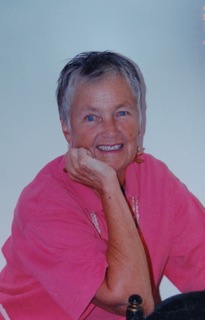through life with fair weather all the way…at least that may appear to be so to
us. Others of us struggle with the
adversities, challenges, slings and arrows of outrageous fortune. All in all, life can be terribly
complicated.
relative ease or discomfort are many.
Human nature is significant. Some
people seem from the get-go to be imbued with great courage and fearlessness. They blithely charge on without much
consideration and seem the happier for it.
Others of us are more circumspect, a trait that can be useful but also
can inhibit risk-taking skills, skills that are necessary to begin and to
continue action.
significant factor; and much that is learned is from the home and parents. That’s why it is so important that, when you
are born, pick really great parents, parents who themselves are
self-actualized, mature, stabile, educated, cultured, and (not least of all)
very rich. Any lessening of these
factors already puts one at a disadvantage.
oneself, learn from experience, good and bad.
If one does not learn from his experiences, he is condemned to repeated,
unproductive behaviors and stagnation.
develops coping skills. That term can
apply to rational, practical skills, but it also can apply to irrational,
impractical behaviors. The trick is to
differentiate between the two. Sometimes
it takes a good therapist to figure that out if one has difficulty doing
so.
skills can lead to practical, productive behaviors. If one stops to think about his successful
skills and to verbalize them, they can be described as “The ABCs of Life.” In my many years of observing human behavior,
I often wonder how many people truly know their ABCs. The answer to that can be disconcerting if,
for example, one is watching the TV show “Cops” and sees a case of a man and
woman drunk and on drugs beating each other up, the cops being called, the man
shooting at the cops, and then engaging in a high-speed chase with police cars
and helicopters in hot pursuit.
brightest are prone to unproductive behaviors.
My friend Kathy has an IQ of 160.
Her mind and her lap-top fingers move ten times as fast as most
people’s. Some of her time on the web is
in useful pursuit of research information; however, much of her time is wasted
by fruitlessly attempting to engage in intelligent dialogues with people who
have oatmeal for brains and opinions that outrageously defy fact, reality, and
simple, decent empathy for humanity. The
great cartoonist and wit Ashleigh Brilliant once wrote, “One cannot argue with
ignorance: ignorance won’t listen; and if it did, it would not understand.” Yet for years, Kathy has driven herself to
distraction attempting, but often failing, to help people see the light. Fortunately after several thousand attempts,
she is beginning to understand the too-often futility of her efforts.
regarded myself as a slow learner. My
nature is always to have felt that the world can be an overwhelming place and
its challenges potentially greater than they actually might be. Having the ability to stop, observe, and
think can be a two-edged sword. On one
hand, careful analysis of the world and oneself can be informative and
useful. By now, I gradually have learned
some of my ABCs, and they have been useful to me. I wish that I had known them starting a long
time ago.
time spent just thinking about things can preclude action and
accomplishment. Centuries ago, a great
Taoist, who was much wiser than I, said the following (in English translation):
until a toad, in fun, said, ‘Prey, which foot goes before the other one?’ This threw the centipede into such a pitch
that he lay distracted in a ditch, wondering how to run.”
and their life stories. I also realize
that, although my own life has not brought me particular fame or fortune, I too
have had some noteworthy experiences and, at times, unusual ones. Since I joined this Story Time group, I have
derived pleasure and satisfaction participating in the group. I do put some thought and effort into my
stories, and I hope that you find them interesting.


